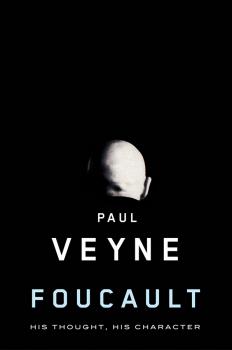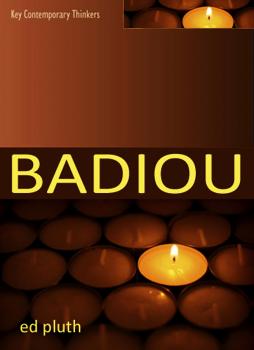ТОП просматриваемых книг сайта:
Философия
Различные книги в жанре Философия, доступные для чтения и скачиванияАннотация
In his recent writings on religion and secularization, Habermas has challenged reason to clarify its relation to religious experience and to engage religions in a constructive dialogue. Given the global challenges facing humanity, nothing is more dangerous than the refusal to communicate that we encounter today in different forms of religious and ideological fundamentalism. Habermas argues that in order to engage in this dialogue, two conditions must be met: religion must accept the authority of secular reason as the fallible results of the sciences and the universalistic egalitarianism in law and morality; and conversely, secular reason must not set itself up as the judge concerning truths of faith. This argument was developed in part as a reaction to the conception of the relation between faith and reason formulated by Pope Benedict XVI in his 2006 Regensburg address. In 2007 Habermas conducted a debate, under the title ‘An Awareness of What Is Missing', with philosophers from the Jesuit School for Philosophy in Munich. This volume includes Habermas's essay, the contributions of his interlocutors and Habermas's reply to them. It will be indispensable reading for anyone who wishes to understand one of the most urgent and intractable issues of our time.
Аннотация
A comprehensive overview of Slavoj ?i?ek's thought, including all of his published works to date. Provides a solid basis in the work of an engaging thinker and teacher whose ideas will continue to inform philosophical, psychological, political, and cultural discourses well into the future Identifies the major currents in ?i?ek's thought, discussing all of his works and providing a background in continental philosophy and psychoanalytic theory necessary to its understanding Explores ?i?ek's growing popularity through his engagement in current events, politics, and cultural studies Pertains to a variety of fields, including contemporary philosophy, psychology, cultural studies, sociology, political science, esthetics, literary theory, film theory, and theology
Аннотация
Rethinking Pragmatism explores the work of the American Pragmatists, particularly James and Dewey, challenging entrenched views of their positions on truth, meaning, instrumentalism, realism, pluralism and religious beliefs. It clarifies pragmatic ideas and arguments spelling out the significant implications they have for present-day philosophical controversies. Explores the work of the American Pragmatists, especially James and Dewey, on the issues of truth, reference, meaning, instrumentalism, essences, realism, pluralism and religious beliefs. The only available publication to provide a detailed commentary on James's book, Pragmatism, while exploring the implications of the American Pragmatists' ideas and arguments for contemporary philosophical issues Challenges standard readings of the American Pragmatists' positions in a way that illuminates and questions the assumptions underlying current discussions of these topics. Coherently arranged by structuring the book around the themes discussed in each chapter of James's original work. Provides a new analysis and understanding of the pragmatic theory of truth and semantics.
Аннотация
An introduction to philosophy through film, Thinking Through Film: Doing Philosophy, Watching Movies combines the exploration of fundamental philosophical issues with the experience of viewing films, and provides an engaging reading experience for undergraduate students, philosophy enthusiasts and film buffs alike. An in-depth yet accessible introduction to the philosophical issues raised by films, film spectatorship and film-making Provides 12 self-contained, close discussions of individual films from across genres Films discussed include Total Recall, Minority Report, La Promesse, Funny Games, Ikuru, The Dark Knight, Memento, AI and more Explores concepts that span epistemology, metaphysics, fate, choice, robot love, time travel, personal identity, spectacle, ethics, luck, regret, consequentialism, deontology and the philosophy of film itself A uniquely flexible resource for courses in philosophy and film that encourages student reflection, as well as being an engaging read for the film enthusiast
Аннотация
The world is populated with many different objects, to which we often attribute properties: we say, for example, that grass is green, that the earth is spherical, that humans are animals, and that murder is wrong. We also take it that these properties are things in their own right: there is something in which being green, or spherical, or an animal, or wrong, consists, and that certain scientific or normative projects are engaged in uncovering the essences of such properties. In light of this, an important question arises: what kind of things should we take properties themselves to be? In Properties, Douglas Edwards gives an engaging, accessible, and up-to-date introduction to the many theories of properties available. Edwards charts the central positions in the debate over properties, including the views that properties are universals, that properties are constructed from tropes, and that properties are classes of objects, and assesses the benefits and disadvantages of each. Attempts to deny the existence of properties are also considered, along with ‘pluralist’ proposals, which aim to accommodate the different kinds of properties that are found in various philosophical debates. Properties is the ideal introduction to this topic and will be an invaluable resource for scholars and students wishing to learn more about the important roles that properties have played, and continue to play, in contemporary philosophy.
Аннотация
Normativity is what gives reasons their force, makes words meaningful, and makes rules and laws binding. It is present whenever we use such terms as ‘correct,' ‘ought,' ‘must,' and the language of obligation, responsibility, and logical compulsion. Yet normativists, the philosophers committed to this idea, admit that the idea of a non-causal normative realm and a body of normative objects is spooky. Explaining the Normative is the first systematic, historically grounded critique of normativism. It identifies the standard normativist pattern of argument, and shows how this pattern depends on circularities, assumptions about the unique correctness of preferred descriptions, problematic transcendental arguments, and regress arguments that end in mysteries. The book considers in detail a paradigm case: legal normativity as constructed by Hans Kelsen. This case exemplifies the problems with normativist arguments. But it also shows how normativism was constructed as an alternative to ordinary social science explanation. The normativist argument is that social science explanations themselves are forced to rely on normative conceptsÑminimally, on normative rationality and on a normative view of ‘concepts' themselves. Empathic understanding of the reasoning and meanings of others, however, can solve the regress problems about meaning and rationality that are central to the appeal of normativism. This account has no need for a parallel normative world, and has a surprising and revealing lineage in the history of philosophy, as well as a basis in neuroscience.
Аннотация
This book offers a clear and highly readable introduction to the ethical and social-political philosophy of John Stuart Mill. Dale E. Miller argues for a «utopian» reading of Mill's utilitarianism. He analyses Mill's views on happiness and goes on to show the practical, social and political implications that can be drawn from his utilitarianism, especially in relation to the construction of morality, individual freedom, democratic reform, and economic organization. By highlighting the utopian thinking which lies at the heart of Mill's theories, Miller shows that rather than allowing for well-being for the few, Mill believed that a society must do everything in its power to see to it that each individual can enjoy a genuinely happy life if the happiness of its members is to be maximized. Miller provides a cogent and careful account of the main arguments offered by Mill, considers the critical responses to his work, and assesses its legacy for contemporary philosophy. Lucidly and persuasively written, this book will be a valuable resource for students and scholars seeking to understand the continued importance of Mill's thinking.
Аннотация
Michel Foucault and Paul Veyne: the philosopher and the historian. Two major figures in the world of ideas, resisting all attempts at categorization. Two timeless thinkers who have long walked and fought together. In this short book Paul Veyne offers a fresh portrait of his friend and relaunches the debate about his ideas and legacy. ‘Foucault is not who you think he is’, writes Veyne; he stood neither on the left nor on the right and was frequently disowned by both. He was not so much a structuralist as a sceptic, an empiricist disciple of Montaigne, who never ceased in his work to reflect on 'truth games', on singular, constructed truths that belonged to their own time. A unique testimony by a scholar who knew Foucault well, this book succeeds brilliantly in grasping the core of his thought and in stripping away the confusions and misunderstandings that have so often characterized the interpretation of Foucault and his work.
Аннотация
Alain Badiou is one of the leading philosophers in the world today. His ground-breaking philosophy is based on a creative reading of set theory, offering a new understanding of what it means to be human by promoting an 'intelligence of change'. Badiou's philosophical system makes our capacity for revolution and novelty central to who we are, and develops an ethical position that aims to make us less anxious about this very capacity. This book presents a comprehensive and engaging account of Badiou's philosophy, including an in-depth discussion of The Theory of the Subject, Being and Event and Logics of Worlds. In a clear and careful analysis, Ed Pluth considers exactly how Badiou's theoretical 'anti-humanism' is linked up to what is, for all intents and purposes, a practical humanism. Central to this is an account of Badiou’s theory of the subject, and his attempt to develop an 'ethic of truths'. The role of set theory, Marxism, and Lacanian psychoanalysis in Badiou's philosophy is also given close attention. This book will be of interest to students and scholars of philosophy, as well as to all those keen to develop a critical understanding of one of the most controversial and important thinkers of the twentieth century.
Аннотация
What do we know about Hegel? What do we know about Marx? What do we know about democracy and totalitarianism? Communism and psychoanalysis? What do we know that isn't a platitude that we've heard a thousand times – or a self-satisfied certainty? Through his brilliant reading of Hegel, Slavoj Zizek – one of the most provocative and widely-read thinkers of our time – upends our traditional understanding, dynamites every cliché and undermines every conviction in order to clear the ground for new ways of answering these questions. When Lacan described Hegel as the ‘most sublime hysteric’, he was referring to the way that the hysteric asks questions because he experiences his own desire as if it were the Other's desire. In the dialectical process, the question asked of the Other is resolved through a reflexive turn in which the question begins to function as its own answer. We had made Hegel into the theorist of abstraction and reaction, but by reading Hegel with Lacan, Zizek unveils a Hegel of the concrete and of revolution – his own, and the one to come. This early and dazzlingly original work by Zizek offers a unique insight into the ideas which have since become hallmarks of his mature thought. It will be of great interest to anyone interested in critical theory, philosophy and contemporary social thought.










